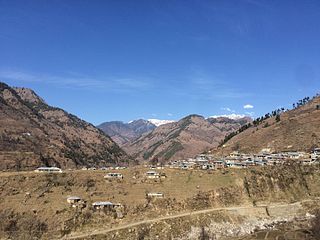It is proposed that this article be deleted because of the following concern:
If you can address this concern by improving, copyediting, sourcing, renaming, or merging the page, please edit this page and do so. You may remove this message if you improve the article or otherwise object to deletion for any reason. Although not required, you are encouraged to explain why you object to the deletion, either in your edit summary or on the talk page. If this template is removed, do not replace it . The article may be deleted if this message remains in place for seven days, i.e., after 18:55, 20 December 2024 (UTC). Find sources: "Mahabatkhel" – news · newspapers · books · scholar · JSTOR Nominator: Please consider notifying the author/project: {{ subst:proposed deletion notify |Mahabatkhel|concern=Unreferenced and unimproved for 15 years. No reliable sources online Google news, nor on the page. Run of the mill family. No article in any other language. Not enough information to merge.}} ~~~~ |
The Mahabbat Khel or Muhabbat Khel or Mohabbat khel or Muhabbat kheyl are Pashtun of Allai. They belonged originally to the Yousufzai tribe, but in Mansehra and Allai the Khel is known as a Swati tribe, because of their invaded from Swat and Afghanistan wardak-kabol.
The Mahabat Khel's forefather's name was Sher Afzal Khan, and he had four sons. Sher Afzal Khan was born between 1500 and 1600 in Swat. The four sons' names were Haleem Shah, Zaman Shah, Bhai Khan and Sida Khan, respectively. Mahabat Khel have a close relationship with the Musa Khel tribe in Allai.
Mahabbat Khel are now living in Karachi, Mansehra, Fatehmang Dharyal Chattar Plain and Allai.
Muhabbat Khel is situated in the area of Pakistan. Lies in the northern part of country. Some of the major tourist attractions in the surroundings of the town of Muhabbat Khel are Going patianrowo Nganjuk (Pakistan) about 70 km, Omah, e_yono Palek JAN (Pakistan) about 70 km, JALLOZAI (Pakistan), about 110 km, Taxila (Pakistan) about 155 km, Rohtas Fort (Pakistan) about 201 km, Islāmābād (Pakistan), about 173 km, Buddhist Ruins of Takht-i-Bahi and Neighbouring City Remains at Sahr-i-Bahlol (Pakistan) about 153 km, Question about Chak Sixty Four (Pakistan) about 176 km, Godwar1 (Afghanistan), about 294 km, SAROUNDINGS (Pakistan) about 224 km, Gulmarg Ski (India) about 299 km, Tajbeg Palace (Afghanistan), about 269 km, Bala Hissar (Afghanistan) about 267 km, Kabul (Afghanistan) about 270 km, . If you want to get more information about the surroundings, you will find them on the left below the link Places around. The nearest international airport (DEL) Delhi Indira Gandhi Intl Airport is situated about 732 km from the town of Muhabbat Khel.
Below is the family tree of Mahabat Khel. The Mahabbat Khel belong to Mandarh Yousufzai - Usman - Amazai- Dolatzai-Mahabat Khel. http://ro.getamap.net/harti/afghanistan/vardak/_mohabbatkheyl/
Muhabat Khel, Afghanistan Page Afghanistan:Wilayat-e Wardak
Mohabbatkhel, Mukhabbatkheyl’, Moḩabbat Kheyl, محبت خېل, Muḩabat Khēl, Moḩabbatkhēl, Mukhabbatkheyl', Mohabbat Kheyl






